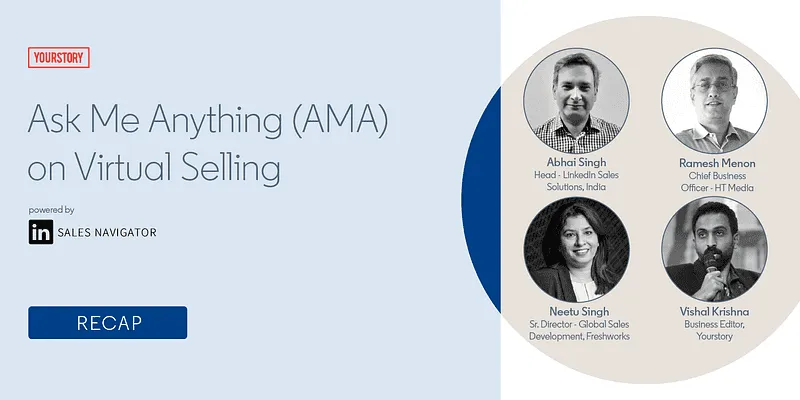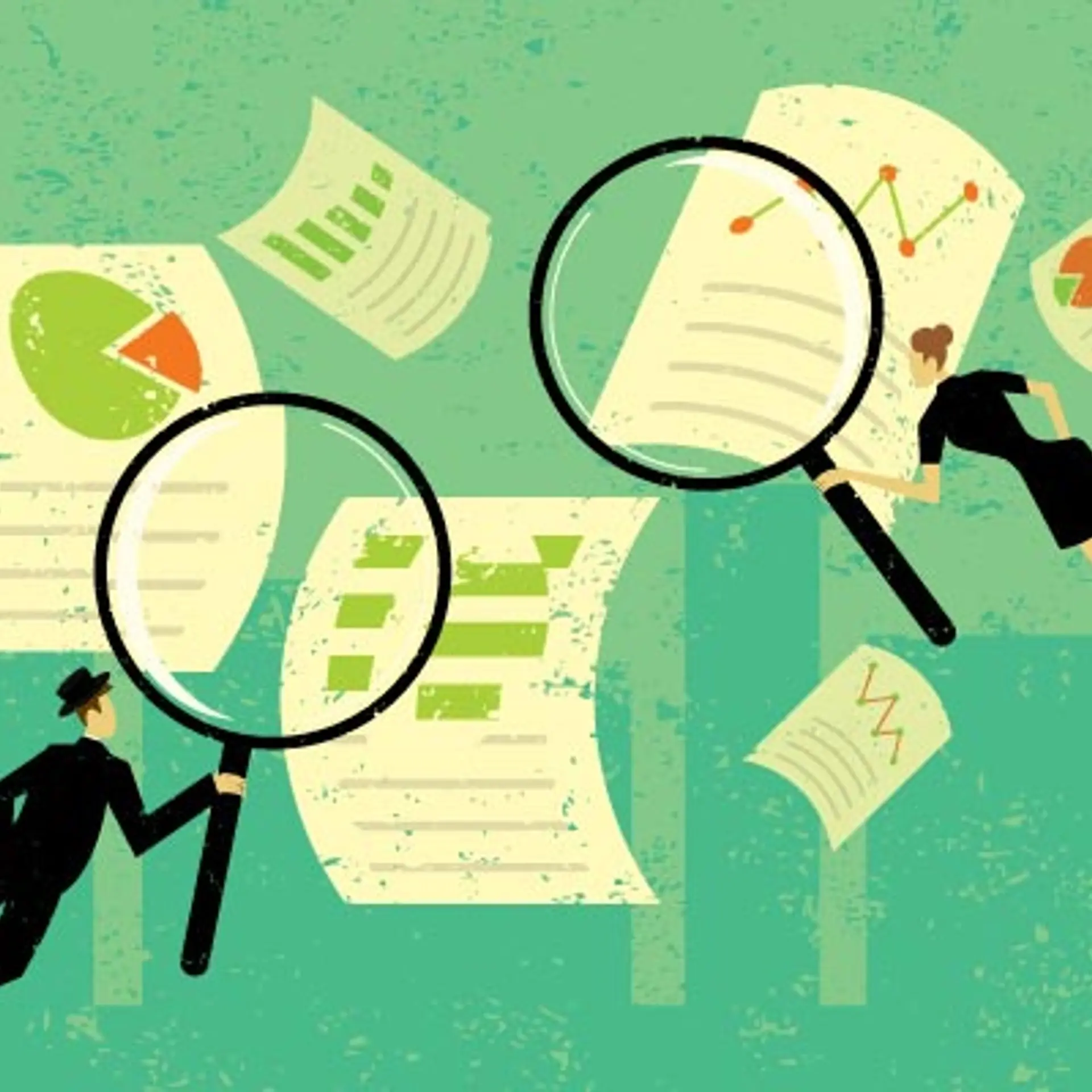Expert speak: How to Transition to Virtual Selling to help your business survive COVID-19.
If you listen very carefully, you might just hear the sound of businesses all over the world tearing up their projections for 2020. With governments having imposed lockdowns lasting several months, we are likely to feel the impact on our lives, businesses and the economy for quite a while. With all live events and conferences being cancelled, businesses that are heavily reliant on a face-to-face model to network have been the first to bear the brunt.
Most companies will now have to re-evaluate and re-imagine ways to connect with buyers and build relationships at scale. The first and most obvious shift will be an increased focus on the digital space and companies that adopt technology faster will have first movers’ advantage.
Impact on Sales - A changing landscape
B2B sales is traditionally seen as an in-person, relationship-based part of business that the Coronavirus has fully disrupted in most cases. To survive in this new normal, sellers are being forced to replace traditional in-person meetings and events with virtual engagement [sales].
This phase of sales looks a lot different than it did a few months ago, and will require a change in mindset, skills, and technology. Businesses that aim to succeed will have to learn strategies on engaging buyers virtually throughout the deal cycle, as well as ways on empowering and supporting teams to be successful in this new way of selling.
To help businesses succeed in this new normal, Your Story hosted its first Ask Me Anything (AMA) on how to approach Virtual Selling with experts from LinkedIn, Freshworks, and HT Media on April 29, 2020.

The panel featured: Abhai Singh, Head - Sales Solutions, India; Ramesh Menon, Chief Business Officer – HT Media, and Neetu Singh, Sr. Director – Global Sales Development, Freshworks and was moderated by Vishal Krishna, Business Editor, YourStory.
Here are some key excerpts from the session:
Q. Virtual selling is the new normal and everybody wants to understand the nuts and bolts of it. What are the key components organisations should focus on when they begin this journey?
Neetu Singh: Traditional companies moving into virtual selling because of the pandemic need to consider a couple of things. First, look at your sales funnel. Buyer behaviours have changed as customers have also become virtual. We will need to figure out our own sweet spots, and what the ideal buyer’s journey is going to be from their point of view . Second, once we understand what our customers are going to look like, we need to create actionable content that caters to every stage of the funnel. Third, there is going to be a mind shift. Let's accept the fact that while webinars, blogs, etc., are fine, we need to change the mindset of the current team in these trying times, and it's going to be a learning phase for everyone.
Q. Any transition to a new model of operation is going to come with some initial hiccups, and you have to adapt as a leader. What are some of the tactics and approaches you would recommend others to follow in this new environment? How should they measure whether they are doing this right – for their business and their teams?
Abhai Singh: Nearly every company in the world had a Vision 2020 that was being discussed in their boardrooms. Come March, businesses have started redrawing their strategies. Every organisation today is really looking at how they would conduct business in the market post COVID-19. I don't think there is any crystal ball that can predict what to do this time. However, there are some basic guiding principles.
For some, it could be retaining customers. For startups, it could be about creating awareness and looking at new geographies to go after. I believe that the most important thing to do would be to have a conversation with your customers to evaluate the impact something like this would have had on them and establish their new priorities in the short-term and in the long run. Once you get that right, figure out if your solution can help them fight this crisis, and have a chat with them backed with enough data and insights. Be as creative as you possibly can, and create unique models that have an equal or better chance of success than what was in the past, and you never know what gold mine you may hit.
Q.What are some of the changes/mindset shifts that more traditional industries like Print [who have also relied on face-to-face more] should be aware of while transitioning to virtual selling? What should success here feel like? And how should one go about in measuring business/sales productivity.
Ramesh Menon: I think it's a great time for traditional businesses like ours to look at processes and ways of working. We have been doing physical selling for such a long time and organisations like ours are heavy on processes and people. This is a good time to re-evaluate and remove processes and non-value adding activities. Some processes are actually slowing down sales. Traditional companies like ours will think about investing more in technology. But we have to match processes and technology. And that's the big change organisations like us need to make right now.
Q. There is a set mindset in sales in today's time, that we meet our client for a coffee and then build that coffee into a comfort deal . How easy is it to build a rapport online? Is there a mindshift change we need to get used to?
Abhai: Before we discuss mindset, let me give you some facts. If you look at stats on the number of companies that have actually frozen budgets, the number has grown 88 percent over the last three weeks of this month, while the number of buyers who are not giving meetings have actually grown 150 percent, and the number of buyers who are working from home have grown about 153 percent, and this is true not just in India, but globally. So the mindset has to change even if the lockdown ends. One thing is certain – there is not going to be a return to how it was three months ago. This is the new normal. Everything we do today will not be for a short-term impact, but for the long run. Companies will need long-term vision because things will definitely change. There will be situations where sales professionals will have to go and talk to a customer and meet over coffee. But those things will be few and far between over the next six to 12 months. So, if you have to sustain your engagement, there has to be more than just a mindset change.
Q. How do you effectively deal with this change and apply systems and processes for dealing with the shift ?
Ramesh: It's almost a daily conversation for us. How do you make traditional marketing teams understand why sales teams are now getting into marketing? That's the challenge that we're all facing. Change has to come down from the top, and I think change management has been put in place. People should stop asking the wrong questions, especially those that are no longer relevant today. The bottom of the pyramid will change much faster if the guys at the top actually make that change.
Q. How can sales teams use technology/digital products for customer acquisition or retention in these times? Will it change drastically? How relevant are the right tools today?
Abhai: Buying behaviour has been changing drastically. And there are a lot of collaboration tools that people are using, which have suddenly become the new buzzwords. But if you just take a step back, what is equally important is ‘Who are you speaking to’? You have to be intelligent enough to understand the demographics of the decision makers. In 2020, approximately 46 percent of the workforce will comprise millennials. Out of these, about 73 percent will be taking decisions for you. And the way they buy is going to be very different from the previous generation. They will do a lot of research on their own before going ahead and forming an opinion. So I think, the right set of digital tools are going to be the lifeline for any sales organisation to do three basic things. Firstly, to identify the right customer segment; second, to establish more connections in the same organisation than you had before COVID-19, and the third and most important is how to keep engaging with them throughout the sales cycle using data and insights.
Neetu: Tools are important because the customers are not working from the office for now. Today everyone is using the CRM tool not just as a repository of records, but also to understand what happened in an account. What types of campaigns did the customer respond to? Then there are repositories for sales enablement, cheat sheets, templates, etc.
Q. In this race for new and sexy tools, what scenarios/pitfalls would you like organizations to think deeply about or try and avoid?
Ramesh: We have all the tools, but the biggest challenge has been getting people to understand them with the right training. I think communication is the only way. You should also reconsider people who are not willing to adapt to change. I think that's critical, because some people just don't want to make that transition. And it's better to let them work in traditional businesses rather than struggle. So beyond making an investment in technology, you have to see whether people are using it, and train the teams. And that's what we've been doing for the last month or so.
Strategising for success
While face-to-face selling may have gone on the backburner, it’s more important than ever to sustain the relationships that have been built over the years. Sales teams are being forced to incorporate technology and adapt their processes to be successful today. For many who are venturing into virtual sales for the first time, the right technology and processes will make it easier for sales reps to transition to remote selling. Especially since customers are also looking to be engaged in more impactful ways.
Watch the complete Ask Me Anything (AMA) session on virtual selling on Facebook.







